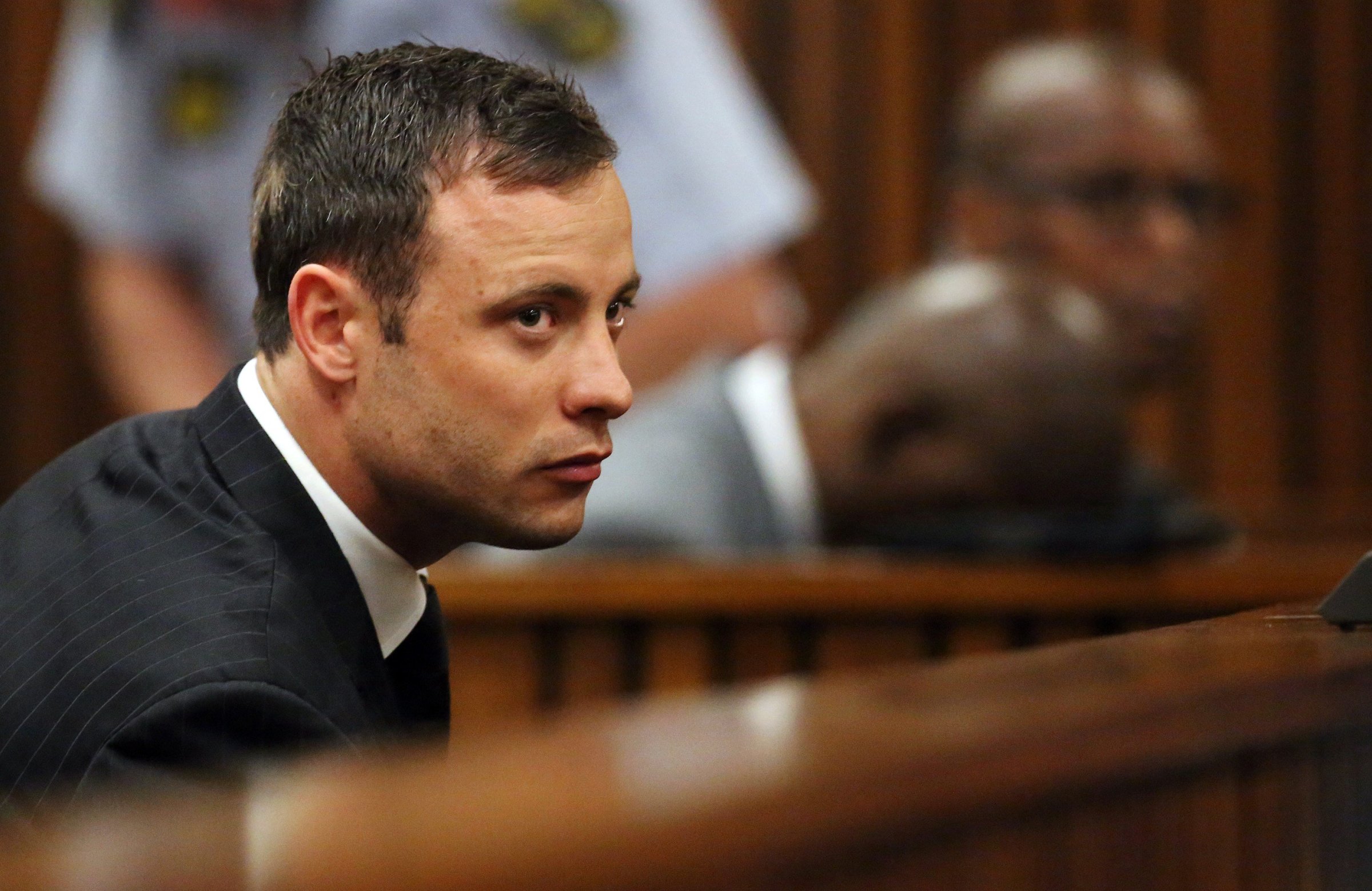
The knee-jerk reaction within South Africa to Oscar Pistorius being acquitted of murder was as swift as it was ugly. Pistorius paid off Judge Thokozile Masipa, said some. He got off because he was an influential sports star, said others. Many said they wanted to see him behind bars for murder. “I think he paid the judge,” said Pontsho Mabogwane, a 20-year-old student sitting in a park near the Pistorius courthouse. “I want him to go to jail.”
Mabogwane isn’t the only one who lacks confidence in the country’s legal system. Once an example of success in the country’s post-apartheid democracy, the judiciary is now seen as favoring the wealthy and high-ranking, with top prosecutors allegedly appointed more for their political loyalty than their commitment to the constitution. In his decision to allow cameras inside the courtroom, Judge Dunstan Mlambo, who ruled that the trial should be broadcast live back in February before the court proceedings began, noted that the decision should help counter the belief that the law in South Africa treats the rich “with kid gloves.”
Yet when Pistorius was acquitted of all murder charges—instead Judge Masipa found him guilty of culpable homicide after shooting dead his model girlfriend Reeva Steenkamp—it appeared to some as though the 27-year-old star sprinter had joined the ranks of other rich, famous people who dodged the full wrath of the law. (Shortly after the judgement #OscarTrial was the top trend in Pretoria, with #JusticeForReeva second). “His intention was to kill whoever was behind that door,” said Nkosi Nkambule, a 39-year-old IT worker standing outside the Pistorius courthouse. “We sincerely hope the state will appeal,” he said, “surely justice will be served.”
Disappointment in the judiciary has been exacerbated by legal experts in the country who have criticized Judge Masipa’s interpretation of murder—and the potential effect is has on the country’s reputation. In her concise ruling, Judge Masipa said Pistorius should not be found guilty of murder because he could not have foreseen he would kill Steenkamp when he fired four shots at the toilet door early Valentine’s Day morning in 2013. “Not only does it appear to be a misunderstanding of the facts, but a misapplication of the law,” said Martin Hood, a criminal lawyer based in Johannesburg, “as a result of that, the perception persists that South Africa is not only a country that is riddled with crime but you can get away with it.”
The sentence for culpable homicide is up to the judge’s discretion, with a maximum of 15 years in jail. Still, there is a possibility of Pistorius escaping prison altogether, given his status as a first-time offender and the notorious state of South Africa’s jails, which are violent and overcrowded. Those familiar with the country’s courts say there is a chance the Paralympic gold medallist won’t be wearing an orange jumpsuit. That’s primarily because of two reasons, says Pauli van Wyk, a crime and court reporter for Beeld, an Afrikaans newspaper in South Africa. “Culpable homicide is not that strenuous a charge and South African jails are to-the-brink full,” said Van Wyk, “so if the guy doesn’t pose a threat to anyone and he says its an honest mistake and he can be rehabilitated, they try and let them go home.”
William Booth, a criminal lawyer based in Cape Town, believes a lot of the outrage could have been dissipated by a more comprehensive ruling from Judge Masipa. “I think South Africans, the public, are dissatisfied because she didn’t explain exactly why she came to her ruling,” he said, “I don’t think she gave sufficient reasons.” Without that explanation, the Pistorius verdict doesn’t sit well with Mabogwane and others who are cynical about the South African legal system. As Mabogwane put it, “you can’t just shoot the person and walk free.”
More Must-Reads from TIME
- Donald Trump Is TIME's 2024 Person of the Year
- Why We Chose Trump as Person of the Year
- Is Intermittent Fasting Good or Bad for You?
- The 100 Must-Read Books of 2024
- The 20 Best Christmas TV Episodes
- Column: If Optimism Feels Ridiculous Now, Try Hope
- The Future of Climate Action Is Trade Policy
- Merle Bombardieri Is Helping People Make the Baby Decision
Contact us at letters@time.com